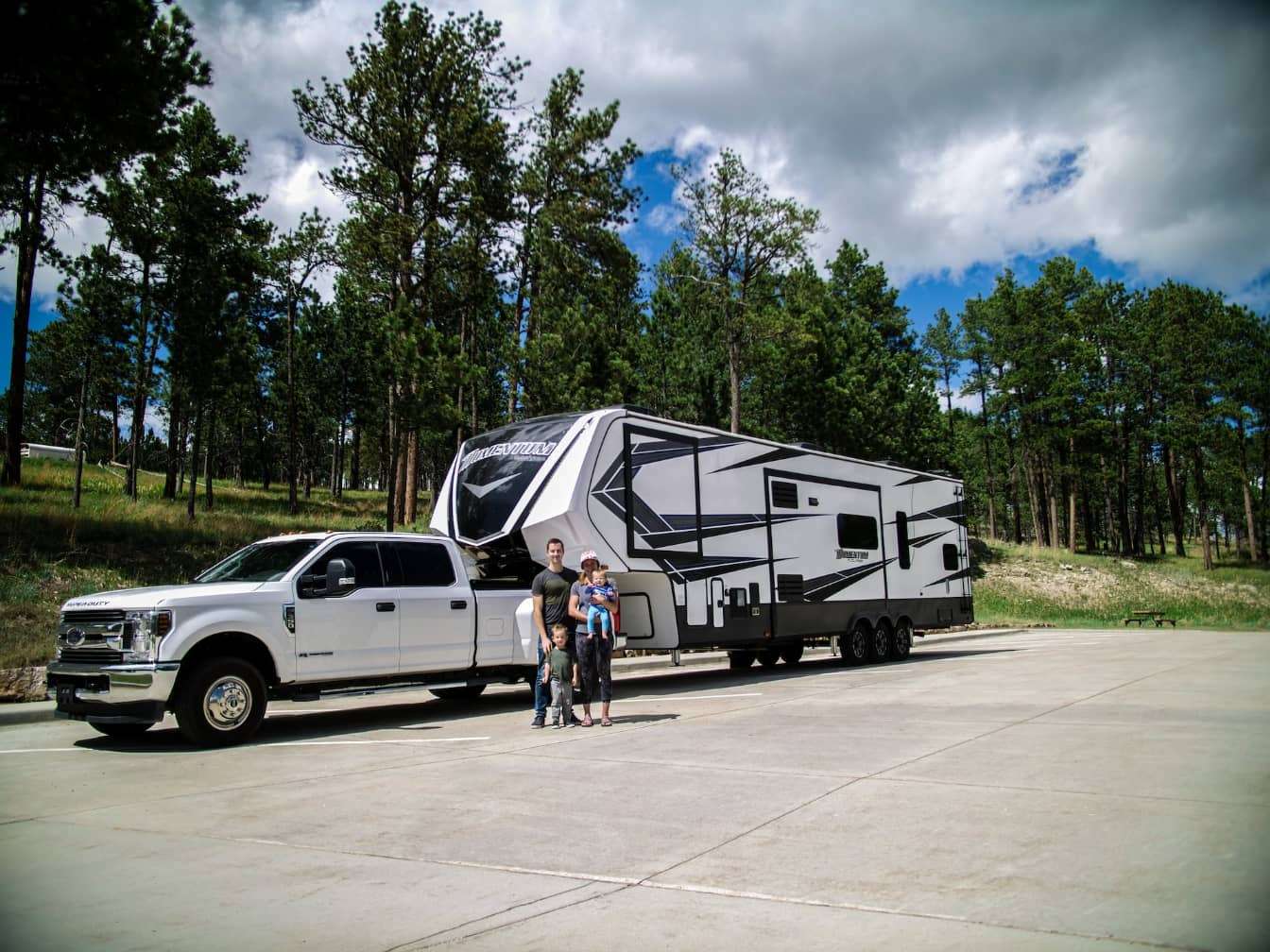
Texas RV Towing Laws: Regulations, Requirements & Rules
Are Texas RV towing laws something you need to worry about before you hit the road? Based on my experience, after RV owners have gone through the trouble of getting their vehicles road-ready (physically or legally), they often overlook that they still have to keep multiple rules in mind when traveling.
If you’re an RV owner in the Lone Star State, it’s essential that you are familiar with Texas RV towing laws. These laws ensure safe travel for everyone on the road while protecting you from legal complications.
Whether you’re a seasoned RV enthusiast or a beginner just hitting the road, understanding Texas RV towing laws can save you from penalties and enhance your RV experience.
Don’t worry; we’ll be taking a detailed look into these regulations, so you can tow with confidence and enjoy the vast beauty that Texas has to offer. Buckle up, and let’s dive into the world of Texas RV towing laws together.
Considerations That Are Fundamental Parts Of Texas RV Towing Laws
Regarding Texas RV towing laws, there are three main considerations you should always keep in mind. These considerations are the dimensions of the towed vehicle, the speed at which you are allowed to travel, and any specific restrictions on the vehicle being towed.
A thorough understanding of these will keep you on the right side of the law and ensure a safe and enjoyable journey across the diverse landscapes of Texas. So, let’s delve into each of these key areas to gain a clear understanding of the Texas RV towing laws.
What Do Texas RV Towing Laws Say About Vehicle Dimensions?
The vehicle dimensions that Texas RV towing laws allow are a fundamental aspect to consider for every RV owner. These rules provide the maximum allowable measurements for the height, width, and length of your towing vehicle and the RV itself.
In general, Texas RV towing laws state that your vehicle, including the RV, should not exceed 13.5 feet in height. This limit ensures that your RV can safely pass under bridges and other overhead structures. For the width, the standard maximum allowed is 8.5 feet, which helps maintain safe lanes for other road users.
In terms of length, the specifics can depend on the type of RV and the vehicle you’re using to tow it. The limit for a single motor vehicle is 45 feet, while for a motorhome, it’s 40 feet. The combined length for a vehicle towing another vehicle should not exceed 65 feet.
What Do Texas RV Towing Laws Say About Vehicle Speeds?
Texas RV towing laws also regulate the speed at which a towing vehicle may operate — taking into consideration the safety of both the occupants and other road users. The standard maximum speed limit for towing vehicles on most Texas highways is 70 mph during the day and 65 mph at night. For some types of trailers, such as fifth wheels, the maximum daytime speed limit is 60 mph (and 55 mph at night).
Typically, Texas law recommends a prudent speed for towing vehicles, considering factors like traffic, weather conditions, and the physical condition of the highway. As a general rule, drivers should not exceed a safe and reasonable speed, given the existing conditions.
Speeding can cause instability in your RV, increasing the risk of accidents. It’s also worth noting that many RV and trailer tires are not designed for high-speed travel, and exceeding their speed ratings can result in tire failure.
What Do Texas RV Towing Laws Say About Vehicle Restrictions?
The saddle-mount method, also known as “towbar towing” or “dinghy towing,” is common among RV owners, especially when they wish to bring along a secondary vehicle during their travels. Texas RV towing laws have explicit stipulations regarding this method, particularly on the number of vehicles that can be towed behind a single tow vehicle.
According to Texas Transportation Code Section 545.409, a motor vehicle may not tow more than three vehicles using a saddle-mount method.
This is the Texas RV towing law that is probably the least likely to come up since most people tow only one or two vehicles at a time anyway.
FAQs
Is it illegal to have a hitch on your truck when not towing in Texas?
One common question that comes up when discussing Texas RV towing laws is the legality of having a hitch on your truck when not actively towing. In Texas, it is not illegal to have a hitch on your truck when you’re not towing.
However, it’s important to note that your hitch should not obscure your license plate or the lights on the back of your truck, as this could be considered a violation under Texas law. These components of your vehicle must be visible at all times for safety purposes, ensuring other drivers on the road can see your vehicle’s signals.
Despite the hitch not being illegal, you may still want to remove it when not in use to prevent injury to others. A protruding hitch can cause accidents, especially in crowded parking lots or tight spaces. Remember, while it may not be a matter of legality, it’s always good to be a considerate driver.
Do you need a special license to tow an RV in Texas?
For the most part, a standard Class C driver’s license is sufficient to drive or tow most typical RVs. However, if the RV or the combined weight of the towing vehicle and RV exceeds 26,000 pounds, you may need a commercial driver’s license (CDL) or a non-commercial Class A or Class B license.
Additionally, it’s important to note that this weight limit includes the weight of the RV plus any additional items or vehicles you’re towing. This could be crucial for RV owners who plan to tow an additional vehicle behind their RV.
As always, verifying this information with the Texas Department of Public Safety (DPS) or the Texas Department of Motor Vehicles (DMV) is essential to ensure that you have the correct license for your specific situation. Requirements may change over time, and regional differences may apply. Being properly licensed is critical to adhering to Texas RV towing laws.
Final Thoughts
In conclusion, understanding Texas RV towing laws is crucial for any RV owner in the state. These regulations cover a wide range of aspects, including vehicle dimensions, speed limits, the number of vehicles that can be towed, and specific licensing requirements.
These laws exist to maintain order on Texas roads and, more importantly, ensure everyone’s safety. Whether you’re a seasoned traveler or a novice hitting the road for the first time, being familiar with these rules will ensure a smoother journey as you explore the vast beauty of Texas in your RV.
Remember, the open road is best enjoyed when traveled responsibly and safely!







